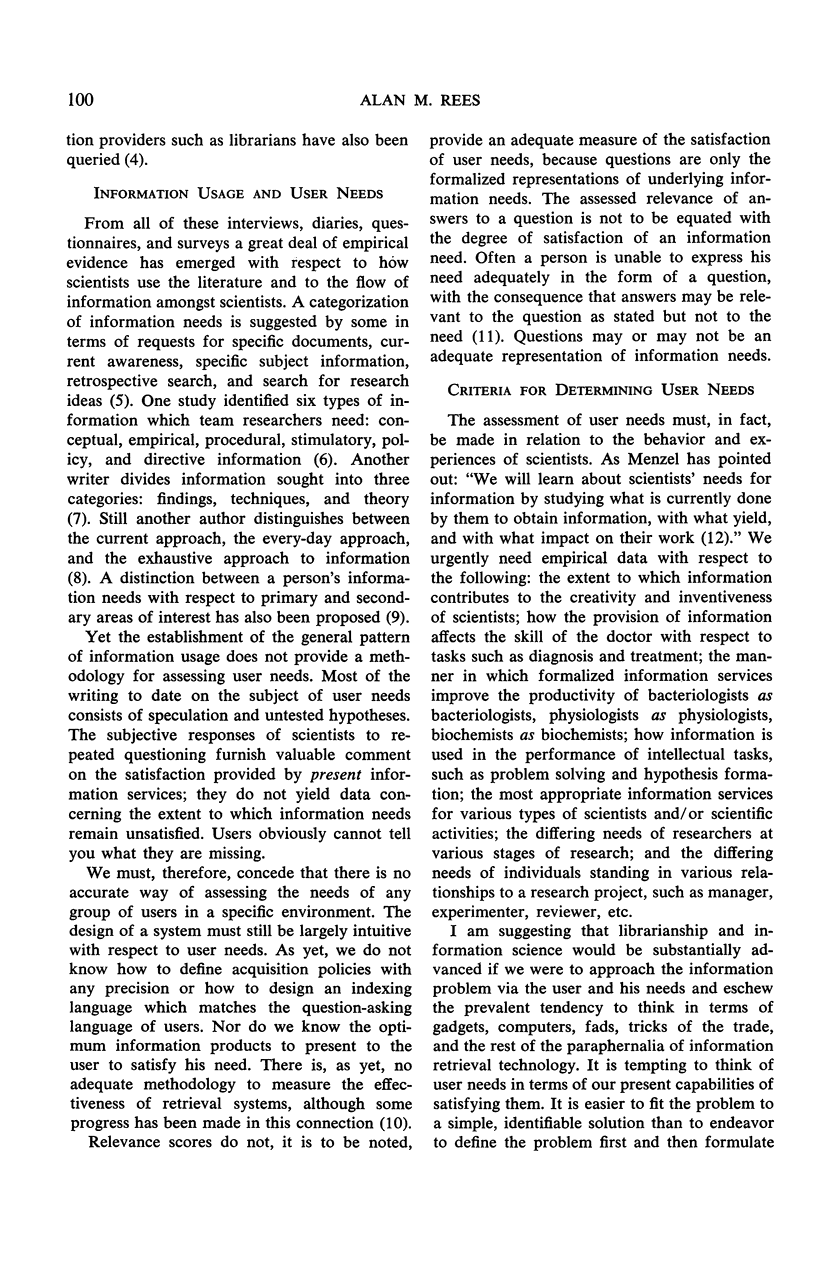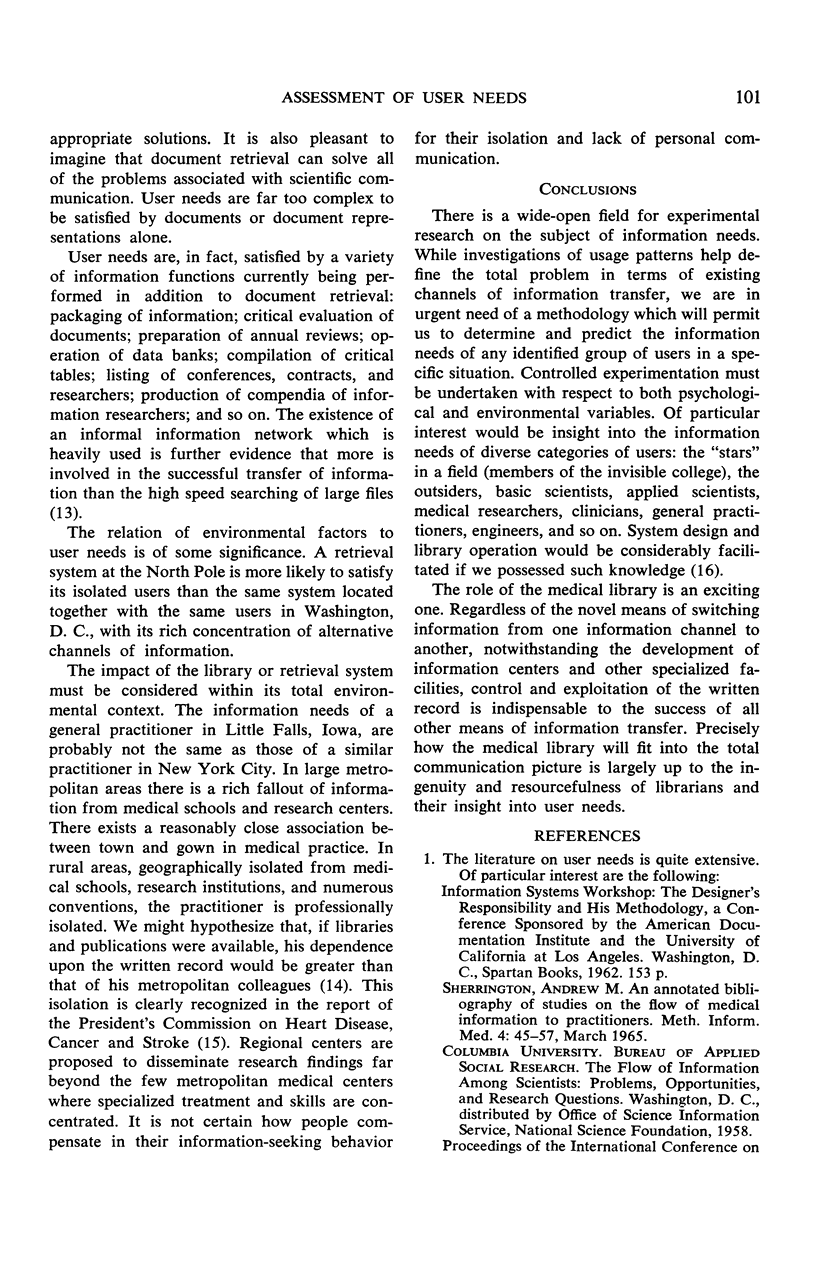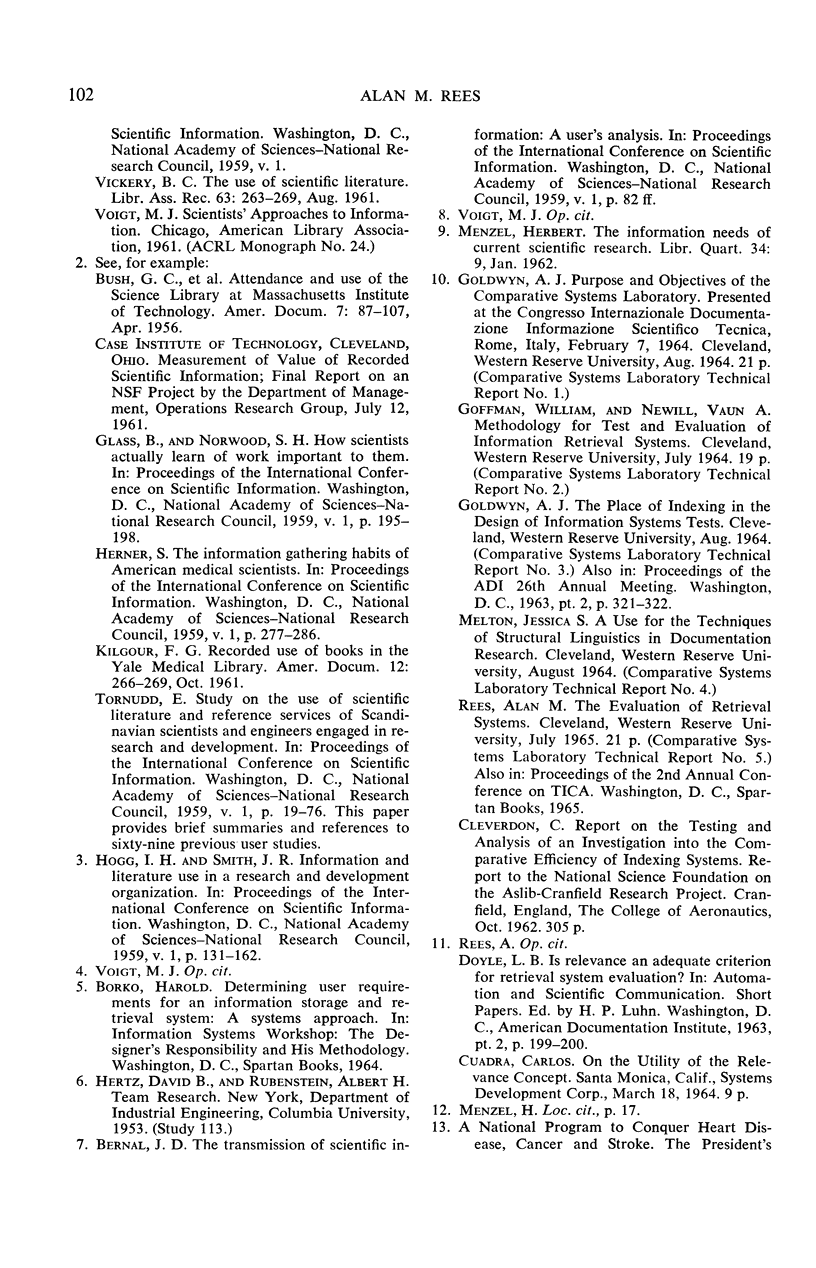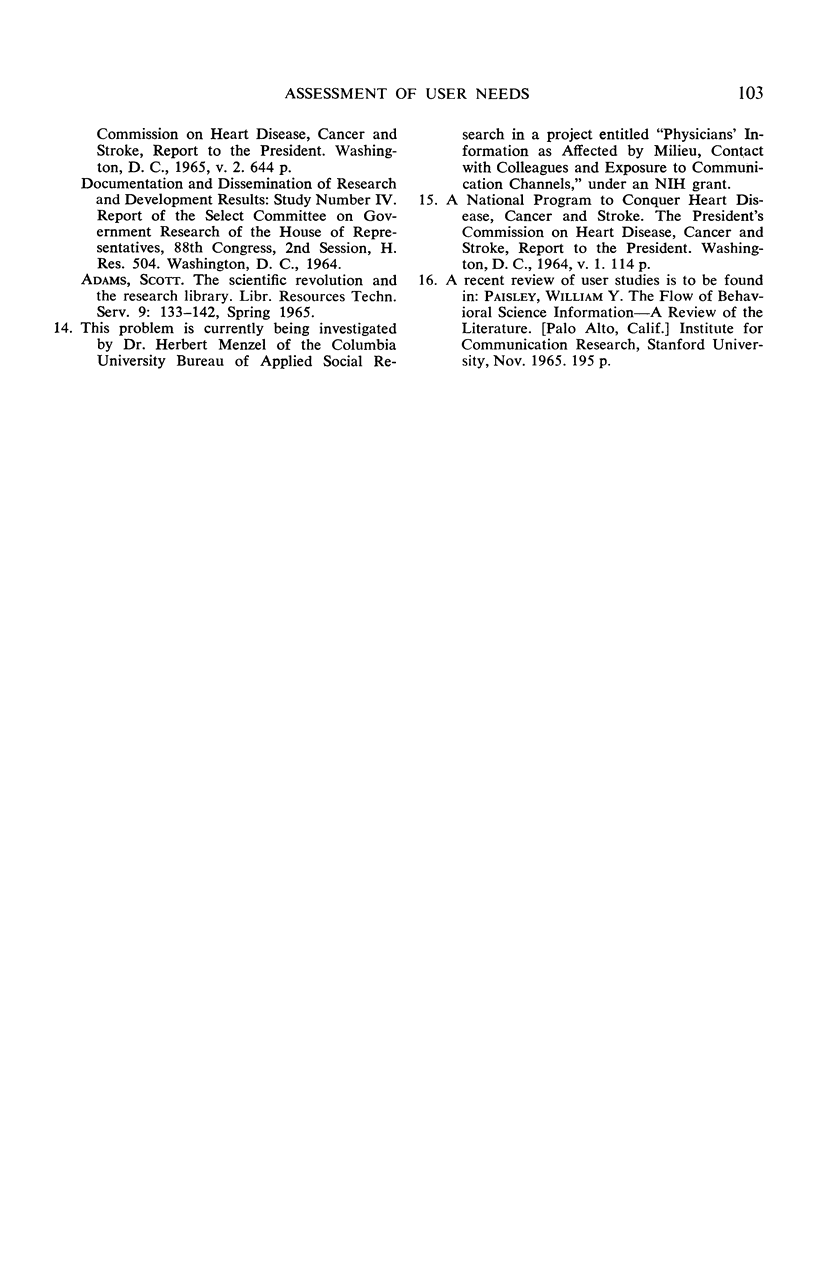Abstract
Users of information in science and technology have been studied in great detail with respect to material read, amount of time spent in reading and searching the literature, categories of questions asked, and so on. Probing for this information has been undertaken by means of structured and unstructured interviews, diaries, surveys, and questionnaires.
Although a large amount of data has emerged on information usage and flow, the subjective response of scientists furnishes comment only on the satisfaction produced by present information services and does not yield insight into the extent to which needs remain unsatisfied. Relevance figures based upon the response of systems to questions cannot be equated with satisfaction of needs, since questions constitute, in most cases, inadequate representations of underlying information needs.
Assessment of the needs of users of medical libraries and information systems must, in fact, be made in relation to the observed behavior and experience of biomedical scientists. There is room for well-designed experimentation which can explore the interaction of both psychological and environmental factors. Significant differences in information needs exist among and between individuals such as researchers and clinicians in the same environment. With respect to environment, it is hypothesized that the information needs of medical practitioners in remote areas might differ significantly from those of their colleagues working in large metropolitan centers in close proximity to medical schools, research institutions, and other rich sources of information fallout.
It is anticipated that experimentation will eventually result in a methodology which will permit the determination and prediction of the information needs of any identified groups of users in a specific environment.
Full text
PDF







